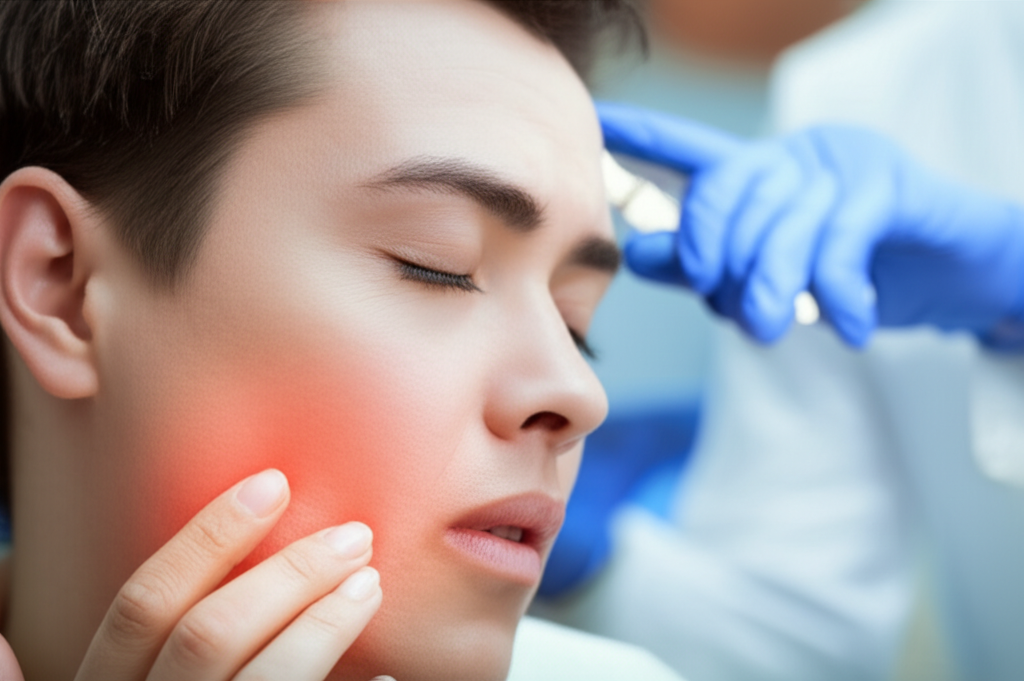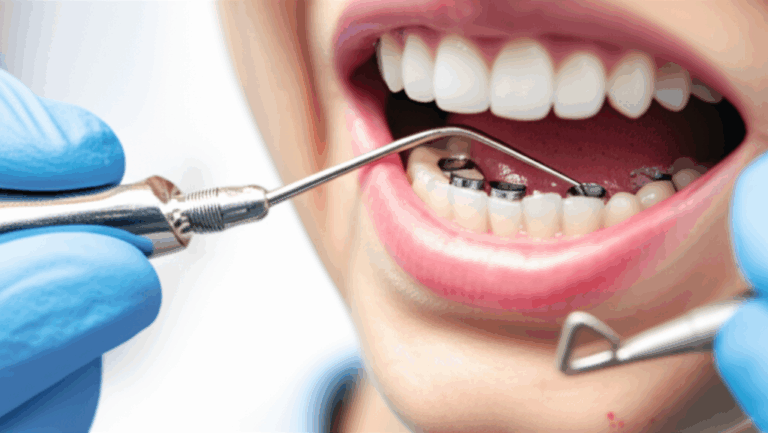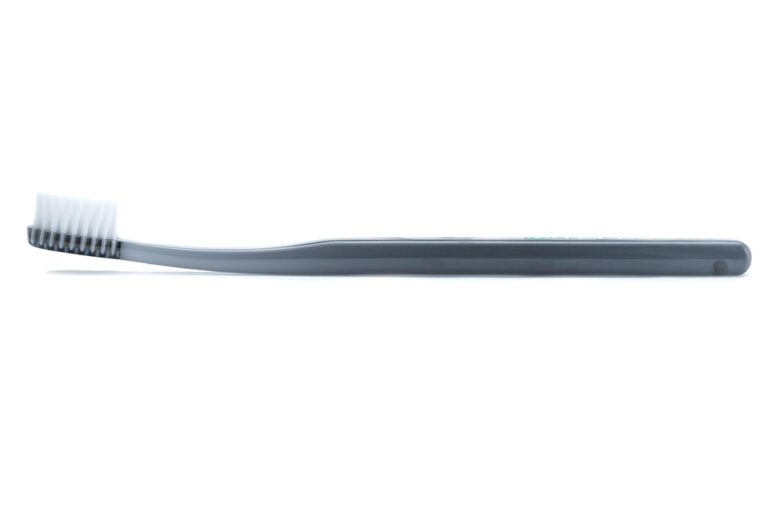
Can Dental Problems Cause Facial Numbness? Understanding the Link & When to Seek Help
Have you ever felt your cheek, lip, or chin go numb—and wondered if it might be because of a tooth problem? You’re not alone. In this article, I’ll explain why dental problems can sometimes make parts of your face feel numb, how serious it can be, and what you should do about it. I’ll keep it super simple, and by the end, you’ll know what to watch for and how to take care of your mouth.
Table of Contents
- What Does “Facial Numbness” Really Mean?
- How Are Teeth and Your Face Connected?
- What Dental Problems Can Cause Facial Numbness?
- Can a Simple Toothache Really Make Your Face Tingle?
- Which Symptoms Should Make You Worry?
- What Happens in the Dental Office?
- How Do Dentists Treat Dental-Related Numbness?
- Will the Numbness Go Away, or Is It Permanent?
- How Can You Prevent Numbness from Dental Problems?
- When Should You Call for Help?
- Frequently Asked Questions (FAQ)
- Summary of Key Takeaways
What Does “Facial Numbness” Really Mean?
When I talk about “facial numbness,” I don’t just mean your face feels a bit odd. I mean you lose feeling, get tingling, or get a “pins and needles” feeling somewhere on your face. Sometimes, only a small spot feels weird. Sometimes, you might not feel anything at all in one area.
Why does this matter? Numbness can mean a nerve in your face or mouth is being bothered or hurt. You shouldn’t ignore this! Of course, if you just got a shot at the dentist, numbness is normal. But if it happens out of nowhere or doesn’t go away, it might be a sign of something bigger.
How Are Teeth and Your Face Connected?
You know your teeth have roots and nerves. But maybe you didn’t know some of those nerves help you feel things on your face. The main one here is the trigeminal nerve. It’s kind of like the “boss” for feeling in your cheeks, lips, chin, and even your tongue.
Here’s a simple word picture:
- The inferior alveolar nerve helps you feel your lower lip and chin.
- The mental nerve, which comes from the one above, helps you feel the skin on your chin and lower lip.
- The lingual nerve helps you feel and taste stuff on your tongue.
- The facial nerve mostly helps your face move, but it can be affected if something big happens.
So, if you have a dental problem near these nerves (like a deep tooth root or an infection), that can push on the nerves, cause swelling, or hurt them.
Easy nerve table:
| Nerve | Where You Feel It | What It Does |
|---|---|---|
| Inferior Alveolar | Jaw, lower teeth, chin | Feeling in teeth, lip, chin |
| Mental | Chin, lower lip | Feels touching on skin |
| Lingual | Tongue | Feels stuff, helps taste |
| Trigeminal (main branch) | Cheek, jaw, lips, teeth | Most of your mouth & face |
What Dental Problems Can Cause Facial Numbness?
Let’s talk about which dental problems might make your face numb. You might not know how many can do this.
Bad Dental Infections
When a tooth gets infected (abscess), things can get messy fast. Infection makes swelling. If that swelling pushes on the nerves, you might feel numb or tingly. Sometimes, infection spreads outside your teeth to your jaw, face, or spots deep inside, like the masticator or submandibular areas.
Bad signs: Lots of pain, swelling, pus, fever, can’t open your mouth wide.
Dental Treatments and Procedures
Sometimes, even a regular dentist trip can leave you feeling numb later, especially if nerves are nearby.
- Wisdom tooth removal: Taking out lower wisdom teeth can bother the inferior alveolar and lingual nerves. If these get bumped or stretched, numbness can happen.
- Dental implants: If the drill goes too deep or hits a nerve, you might get tingling or lose feeling in your jaw or chin.
- Root canal: If the dentist goes too deep or the filling touches a nerve, numbness can show up.
Impacted Wisdom Teeth
An impacted tooth is one that can’t come out all the way. If this tooth presses on a nerve or gets infected, numbness can happen.
Jaw Cysts or Tumors
Sometimes, cysts (fluid bubbles) or tumors can grow in your jaw bone. If they get big, they can push on nerves and make parts of your face lose feeling.
Jaw Fractures or Hits
If you get hit in the face or break your jaw, the nerves can get hurt right away. With a bone break near a nerve, the nerve can get pinched or even cut.
TMJ Problems
Your jaw joint (the jaw hinge) is right in front of your ear. Once in a while, very tight muscles or a very sore joint can push on nerves, making parts of your face numb.
Want more info on these dental issues? Check our guides on Dental Diseases and Teeth Health.
Can a Simple Toothache Really Make Your Face Tingle?
A regular cavity usually won’t make your face numb. But sometimes, pain from a deep cavity or infection can move along nerves. This “travels” and you might feel it in your cheek, jaw, or under your eye.
But what about tingling? If you feel pins and needles or a dead feeling, usually that means a nerve is being pushed, squished, or bothered by swelling, infection, or sometimes even a filling or crown.
Which Symptoms Should Make You Worry?
It’s easy to worry if your face feels strange. But some symptoms mean you should see your dentist or doctor fast. Here’s what you should really watch for:
- Sudden numbness, especially on just one side of your face
- Pain moving to your face, ear, or neck
- Swelling so much it’s hard to breathe or swallow
- Fever, chills, or feeling really sick
- Your face droops or looks different, or it’s hard to smile
- Trouble chewing, talking, or eating
If you notice these, don’t wait! The longer you wait, the worse nerve or infection problems can get.
What Happens in the Dental Office?
I’ve been in a lot of dentist chairs and talked to lots of dentists. Here’s what happens if you come in with facial numbness:
First, the dentist listens to your story. When did the numbness start? Was it after a dentist visit, an accident, or out of nowhere?
Then comes the check. Your dentist will look at your teeth for cavities, infections, gum problems, or swelling. They’ll also gently poke or touch parts of your face to see if you can feel it.
Pictures are super important. This means dental X-rays, big mouth X-rays, or sometimes, even special scans like a CT or MRI if they think something deeper (like a cyst, tumor, or fracture) is going on.
At china dental lab, we help dentists get the best pictures and models of your teeth—making it way easier to spot these tricky problems.
How Do Dentists Treat Dental-Related Numbness?
How it’s fixed depends on what’s causing it. Dentists always want to stop the real problem, not just the numbness.
- Infection? You’ll probably get antibiotics, and maybe the dentist will clean out pus or drain an abscess. Sometimes, the tooth gets pulled or gets a root canal.
- Broken tooth or injury? The dentist might keep your jaw still and fix your tooth as best as possible. You might need surgery for big injuries.
- After dentist work? If numbness sticks around too long, your dentist might watch you or send you to a nerve doctor.
- Big cysts or tumors? These almost always need surgery by a special jaw surgeon.
- Jaw or muscle problems? You might see a jaw doctor for a mouth guard, simple stretches, or simple meds.
For rare cases where a nerve is really hurt after dental work (like an implant or wisdom tooth), nerve surgery can sometimes help but it doesn’t always bring feeling back.
Will the Numbness Go Away, or Is It Permanent?
This really depends on how long the nerve has problems, how bad the damage is, and how quickly you get help.
Good news: Most numbness from dental work or infection goes away. You might feel weird for a few days, weeks, or even a couple of months. Permanent numbness is pretty rare (less than 1% for most extractions or implants), but it can happen if the nerve is really damaged or squished for a long time.
Quick facts:
| Cause | Chance Numbness Never Goes Away | How Long It Usually Lasts |
|---|---|---|
| Dental infection | Very rare, if fixed quickly | 1-4 weeks after fixing |
| Wisdom tooth removal | 0.5%-5% short-term, <0.6% forever | A few days to several months |
| Dental implants | Up to 13% for a short while (rare forever) | Weeks to months |
| Shot from dentist | Almost never forever | Hours to a few days |
If you’re still numb 2-3 months after dental work or infection, see a nerve or jaw specialist.
How Can You Prevent Numbness from Dental Problems?
Let’s be honest: Nobody wants a tingly, numb face. The best ways to stop dental problems that cause numbness are easy and work well.
- Brush and floss every day. Keeping teeth clean lowers your risk for cavities and gum infection.
- See your dentist often. They can spot little problems before they turn big.
- Don’t ignore pain or swelling. Fix small problems early so nerves don’t get hurt.
- Get regular X-rays. These show hidden tooth infections or wisdom tooth problems before you feel anything.
- If you play sports, wear a mouthguard. Protecting your teeth keeps the nerves safe from injury.
If you need dental work (like fillings, crowns, or implants), always choose a dentist who is careful and uses good materials. Digital dental lab services help by giving your dentist clear models and tools that fit right.
When Should You Call for Help?
I can’t say this enough: If your face goes numb and it’s not from dentist numbing medicine, see a dentist soon. If you also get swelling, fever, or trouble breathing—call emergency services fast.
Even if you think “this will go away,” nerve problems are much easier to fix early.
Frequently Asked Questions (FAQ)
Does facial numbness always mean nerve damage?
Not always. Sometimes it’s just swelling, pressure, or leftover numbness from dentist shots. But if it keeps going or comes out of nowhere, it could mean nerve damage.
Can one cavity make my cheek go numb?
Usually only if the cavity turns into a deep infection or abscess that spreads to the nerves.
How do I know if this is a dental emergency?
Any sudden numbness, face drooping on one side, or trouble breathing is an emergency. Call your dentist or go to the ER.
What should I tell my dentist if I have numbness?
Be clear. Let them know when it started, what it feels like, and if you had dental work or an injury lately.
Where can I learn more about keeping my teeth—and nerves—safe?
Read about Teeth Information to stay in the know and stay safe.
Summary of Key Takeaways
- Dental problems can make parts of your face numb, especially infections, dentist work, or jaw injuries.
- The main nerve is the trigeminal nerve and its branches (inferior alveolar, lingual, mental).
- See your dentist right away if you get new or worse numbness, pain, swelling, or fever.
- Most numbness after dental stuff goes away, but permanent numbness is possible if you wait too long for help.
- Best way to prevent it: Keep your mouth clean, see your dentist, and don’t ignore weird symptoms.
If you need great dental models for safe, accurate treatment, check out crown and bridge dental laboratory for top service that helps keep your smile (and nerves) healthy.
Don’t wait if your face feels numb. Catch problems early, and you’ll keep your smile—and your sense of touch—for many years!








